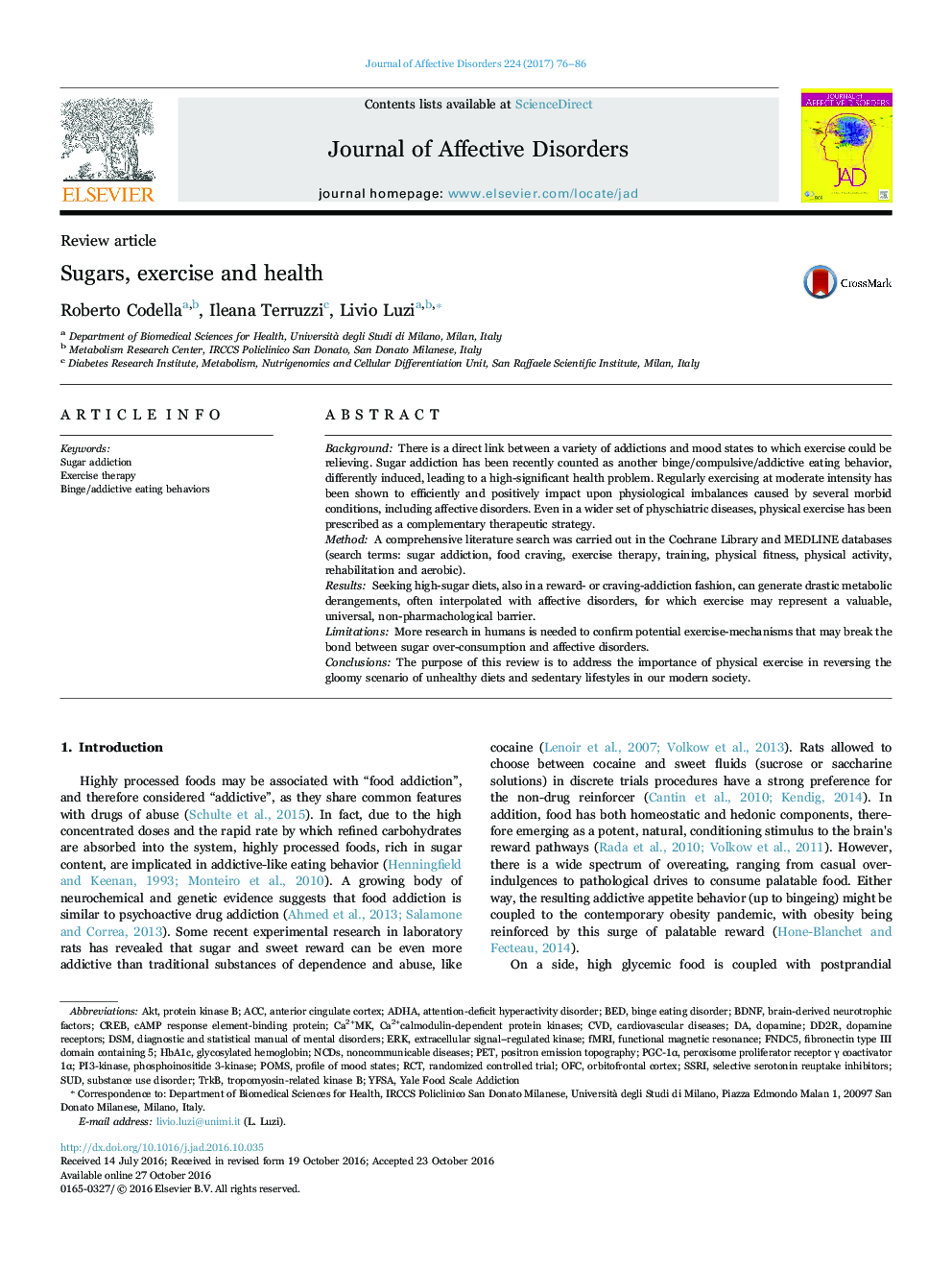| Article ID | Journal | Published Year | Pages | File Type |
|---|---|---|---|---|
| 5721826 | Journal of Affective Disorders | 2017 | 11 Pages |
â¢Sugar over-consumption may alter the reward system like in drug addictions.â¢Exercise promotes neuroplasticity counteracting competing reward processes.â¢Personalized exercise may assist the treatment of metabolic and affective disorders.
BackgroundThere is a direct link between a variety of addictions and mood states to which exercise could be relieving. Sugar addiction has been recently counted as another binge/compulsive/addictive eating behavior, differently induced, leading to a high-significant health problem. Regularly exercising at moderate intensity has been shown to efficiently and positively impact upon physiological imbalances caused by several morbid conditions, including affective disorders. Even in a wider set of physchiatric diseases, physical exercise has been prescribed as a complementary therapeutic strategy.MethodA comprehensive literature search was carried out in the Cochrane Library and MEDLINE databases (search terms: sugar addiction, food craving, exercise therapy, training, physical fitness, physical activity, rehabilitation and aerobic).ResultsSeeking high-sugar diets, also in a reward- or craving-addiction fashion, can generate drastic metabolic derangements, often interpolated with affective disorders, for which exercise may represent a valuable, universal, non-pharmachological barrier.LimitationsMore research in humans is needed to confirm potential exercise-mechanisms that may break the bond between sugar over-consumption and affective disorders.ConclusionsThe purpose of this review is to address the importance of physical exercise in reversing the gloomy scenario of unhealthy diets and sedentary lifestyles in our modern society.
Graphical abstractDepicting of the brain reward cascade dysfunction. Sugar over-consumption alters the reward system resulting in a deficiency that preludes to a sugar addiction. This vicious circle may be attenuated by physical exercise via enhancement of the neurotrophic factor (BDNF) and the dopaminergic system.Download high-res image (154KB)Download full-size image
